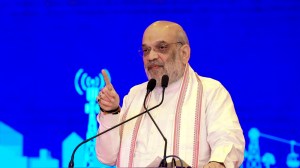Gujarat unlikely to have long-term impact on economy, says NCAER
Contrary to what the foreign investors had to say, the National Council of Applied Economic Research (NCAER) has stated that the turbulence ...

Contrary to what the foreign investors had to say, the National Council of Applied Economic Research (NCAER) has stated that the turbulence in Gujarat would not have any long-term impact on the economy.
According to a survey conducted by the NCAER, business sentiment in the country have shown an improvement despite the current turbulence in Gujarat. Suman K. Bery, director general of NCEAR said that ‘the survey conducted after the Gujarat disturbance (post-Godhra violence) seems to suggest that business sentiment is picking up’. Recent incidents in Gujarat could lead to short term disturbances but it is unlikely to have any long-term impact, Bery said speaking on the sidelines of an Indo-Canada Business forum organised by the CII.
With the US economy showing signs of revival, there were reasons for a guarded optimism, Bery said despite the provisional data released by the government indicating that growth rate in six core infrastructure sectors had declined to three per cent during 2001-02 from over five per cent a year earlier.
Making a presentation on the short and medium term prospects of the Indian economy, Bery said ‘there are more upside possibilities than downward risks that India will maintain its 5.6 per cent growth in GDP’.
However, this was dependent on the success in implementation of second generation reforms, particularly in areas like custom tariff reduction, fiscal adjustment, deregulation, monetary policy and infrastructure. Bery said the muted response of the manufacturing sector to the decade-old reform process was disappointing as was the sharp decline in public investment in the latter half of the 90’s.
Though services had been identified as an area of high growth, the sector was still relatively opaque making it difficult to estimate the increase in productivity. Identifying the areas of concern, Bery said the agricultural slowdown, increasing fiscal deficit of the centre and the states and the reduction in manufacturing and electricity sectors in the last two years needed to be addressed.
Photos





- 01
- 02
- 03
- 04
- 05


























